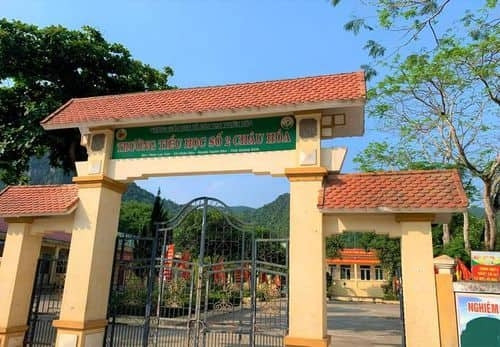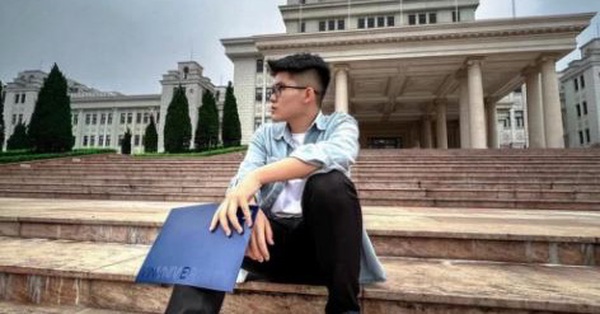New ZealandAlisa Pham – a girl who entered university at the age of 11 – loves to cook, loves online games and finds it easier to talk to older classmates than her peers.
The girl with short hair hugging her chubby face often giggled during online interviews. Whenever it is difficult to express in Vietnamese, Alisa Pham (Van Vi An) covered his face with his hands, smiling.
Since being known as a “prodigy”, Alisa looks in the mirror and always chooses beautiful clothes when going out.

Alisa Pham, 11 years old, a freshman at Auckland University of Technology (AUT). Image: Characters provided
At 11 years old, Alisa surpassed her sister’s record Vicky Ngo (Ngo Ngoc Chau), becoming the youngest student at Auckland University of Technology (AUT) – a school with a 120-year history. Alisa and Vicky are both members of Mensa (the organization of people with IQ scores higher than 98% of humanity) and are recognized as child prodigies by the Global Child Prodigy Award. They are not sisters and currently live with their mother, who is also the legal guardian, in New Zealand.
The single mother, who works in finance, declined to be identified. I met Vicky since his son had not revealed his special ability. When Vicky became famous, she was asked by many people about how to choose to receive talented adopted children.
“Many people misunderstand the fate of mother and daughter, thinking that I adopted a child with a purpose, calculation. It hurt the child and me,” the mother explained anonymously.
Four years ago, Alisa came to New Zealand from Vietnam with her mother and sister Vicky on an impromptu trip to visit… penguins. After a tour of Auckland, the sisters wanted to stay here. Alisa then was in 2nd grade, knowing how to read and paint, while Vicky was in 6th grade. Both were later accepted into a public school in Auckland.
Not knowing English, the first few weeks, the two sisters played together because they had no friends. Seeing that the children could not integrate, the mother suggested “five magic questions” to get acquainted.
“My mother taught me five questions about the meaning of your name, your favorite food, what land you come from, what sport you play and what book you like the most. However, after applying the first two sentences, I got used to them all. class,” said a first-year female student majoring in Branding and Advertising.
According to Alisa, Pham Vi An means “peace, small happiness”, and Ngo Ngoc Chau is “small pearl”. The sisters explain their names and ask questions about the meaning of their classmates’ names.
Curious, the children asked their parents to explain to Alisa and Vicky the next day. Once they got their attention, the sisters continued with a second sentence about their favorite food. Just like that, after two months, Alisa and her sister were able to converse with friends in English.
At school, Alisa sisters are evaluated for excellence by two criteria: academic ability and soft skills. New Zealand education focuses on inclusiveness, so in addition to academic performance, students are graded based on six skills, including: Intentional – Active in the learning environment, Collaborative – Cooperation and teamwork, Curious – Filial piety Learning, Resourceful – Ability to handle situations, Connected – Ability to create relationships and Invested – Ability to work methodically.
Vicky is left-brained, has a high IQ, and is prone to calculations; and Alisa developed right brain, high EQ, language ability, creativity and art. Vicky passed from 7th grade to 9th grade and went straight to AUT at the age of 13. Inspired by her sister, Alisa completed primary and secondary school in three years, and high school in 10 months.
It only took me four years to go from second grade to university. Alisa explained, she easily overcame because New Zealand’s program is applicable and promotes students’ creativity. “I also want to save money, by studying ahead of time, so that my mother doesn’t have to work hard,” Alisa said.

Alisa (second, right) and her sister and the President of Auckland University of Technology – Derek McCormack (left). Image: Characters provided
To enter university in New Zealand, Alisa must complete 80 credits. Meanwhile, August-November 2021, Auckland was locked down because of the epidemic. At that time, Alisa had only completed 21 credits. In early November, when she returned to school, Alisa completed the missing credits.
Normally, students have three years to complete 60 credits, Alisa only takes four weeks. As such, you have to take six tests per week. “Teachers said this was too difficult, but I persisted and tried,” Alisa recalls.
Alisa often gets lost because the school is too large, so AUT had to set up a support system for her, similar to the one they used to set up for Vicky. In the interview with NZ Herald In March, Alison Sykora, a spokesman for AUT, said the school had a tracking software system for Alisa and Vicky, and arranged a 10-person security team to escort them to class and school activities.
In addition, a group of five senior students will take turns sitting next to the child in class, observing if he or she understands the lesson and making reports independently of the school. Her mother also comes to class and participates in the course with her child.
Every week, Alisa has three meetings with her psychology teacher to assess whether she is adapting to learning or not. If there are signs of stress or overload, Alisa will be stopped.
The mother added that when accepting Alisa into the school, from the beginning of the year, the school discussed with the subject teacher, reconstructed examples in the lesson, to avoid affecting the child’s psychology. “Alisa’s curriculum has no examples of violence or sex,” her guardian said.
Mr. Andrew Codling, Head of AUT Principal’s Office, expressed his happiness when accompanying Alisa and Vicky. “I am proud to see Vicky complete university, graduate and now prepare for a doctorate. She will become the youngest researcher in New Zealand after graduation and so will Alisa”, Mr. Codling shared.
Alisa’s class has 60-70 students, average age 23. Alisa is particularly interested in Design. She is comfortable interacting with older classmates but lacks interest in peers.
“When I was in high school, I had many close friends who are locals, still communicating with friends of the same age, but not interested in topics. Instead of discussing new shows on Netflix, trends on TikTok, I want to know how to own such a company,” Alisa recalls.
On weekends, she enjoys playing online games, squash, swimming, drawing and cuddling her four stuffed dogs to bed.
Alisa was trained to live independently and know how to manage expenses from a young age. After arriving in New Zealand, the two sisters were allowed to open a bank account by their mother. Vicky is in charge of big things like rent, meals; Alisa pays for electricity, water, Internet… Every month, her mother will transfer money to two cards. If you spend it wisely, if you have an extra amount, you will be able to use it to buy your favorite item.
“I accept that my children lose their cards, send the wrong money… but in this way, they know how to plan, become more independent, mature and responsible,” said the mother, saying her father. Last year, she no longer had to worry about spending management because two children sent each item’s report every week.

Vicky and Alisa (second and third, left) on an outing with a group of friends. Image: Characters provided
Outside of school, Alisa and Vicky spent two weekends participating in volunteer activities of the House of Wisdom and Kindness Bookcase, giving books to children in Vietnam. Both are founders of the New Zealand Mind House, which organizes free Math, English, and learning methods for students with difficulties.
The two children are also running the Gamma Soldiers charity fund to sponsor talented children with difficult circumstances in Vietnam and sponsor victims affected by Covid-19.
Alisa’s biggest dream is to become a lawyer. “I will return to Vietnam to live and work. I plan to study quickly to get a university degree in two years,” Alisa said.
Dawn
at Blogtuan.info – Source: vnexpress.net – Read the original article here



